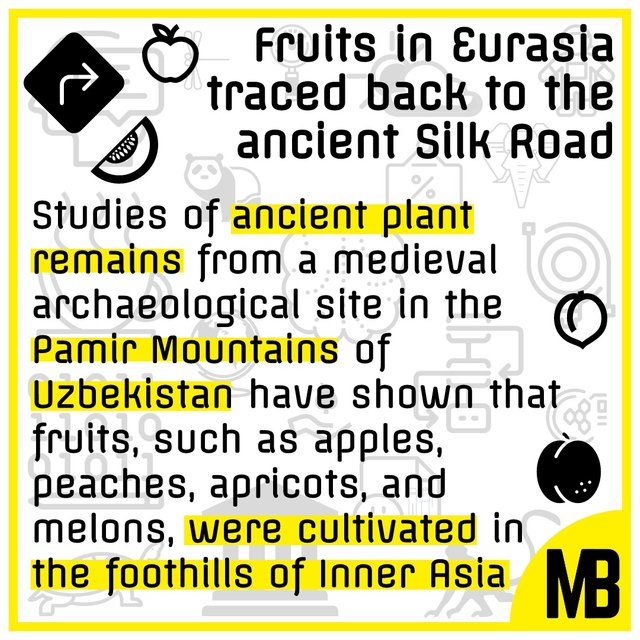
The archaeobotanical study, conducted by a team from the Max Planck Institute for the Science of Human History, is among the first systematic analyses of medieval agricultural crops in the heart of the ancient Silk Road. It analyzed preserved ancient seeds and plant parts recovered from a medieval archaeological site in the foothills of the Pamir Mountains of eastern Uzbekistan. The site, Tashbulak, is currently under excavation by a collaborative international Uzbek/American project involving Washington University in St. Louis, and the Institute for Archaeological Research, Academy of Sciences in Tashkent, Uzbekistan.
@jayatheertha, I gave you a vote!
If you follow me, I will also follow you in return!
Downvoting a post can decrease pending rewards and make it less visible. Common reasons:
Submit